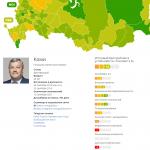The body's immune system is the body's natural defense against disease. In a calm state, this system has millions of cells, with the onset of a disease, the body produces new leukocyte cells, specific antibodies, etc. To assess the state of human immunity, a special study of an immunological blood test is used. This test may include several parameters for research or be complex.
What is an immunogram
During fetal development, the child's body is protected by the mother's immunity. After birth, children's immunity is quite weak, but with age, the body's defenses are gradually strengthened. If the natural defenses are not enough to fight the infection, medical treatment should be carried out. A frequent tendency to various diseases may be the result of a weakened immune system, in which case an immunological blood test is prescribed.
A blood test for immunity is called an immunogram. This is a comprehensive laboratory blood test. Also, cerebrospinal fluid can be used as a biological material. The test is carried out in the laboratory. The analysis can be carried out on one or more parameters. Many commercial laboratories offer "batch" type medical tests. In this case, for example, a general analysis of "Immunoglobulins A, M, G" is cheaper than a separate study of each type of immunoglobulin.
When is an analysis ordered?
There are a number of medical indications when it is necessary to take a blood test for immune status. The concern is the patient's susceptibility to viruses and various infections. There are systemic lesions of the body that can be caused by radiation or chemotherapy, severe infectious diseases, poisoning with toxins. Local lesions are caused by local damage to immune cells due to inflammatory and infectious processes.
The doctor prescribes an analysis to check the immune status in the following conditions.
- Detection of the immunodeficiency virus in a patient. In this case, every patient needs to donate blood for an immunogram, regardless of their state of health and the presence of concomitant diseases.
- Chronic bronchitis, sinusitis and other pathological conditions.
- The development of oncological diseases and cancerous tumors. During the development of cancer, the body begins to produce a large number of antibodies that are used to fight cancer cells. But malignant cells divide and grow much faster than antibodies, as a result, immunity is greatly weakened and the body becomes vulnerable to other diseases.
- Metabolic diseases (diabetes, etc.). Patients with diabetes experience slow tissue healing, which can lead to severe inflammation.
- Diseases of the gastrointestinal tract, especially chronic ones.
- Violation of the power system. An analysis of the immune status is necessarily prescribed when the body is depleted. It is also desirable to determine the state of immunity for people with food restrictions (veganism, a strict diet, etc.).
- Organ transplantation. Immunology is carried out before and after surgery.
- Sudden weight loss for no apparent reason.
- Syndrome of chronic fatigue on the background of a long stay in stressful conditions.
At some point in life, each person should think about the state of his immune system. There are a large number of diseases and pathogenic microorganisms (Hepes virus, Helicobacter pylori, etc.) that are not active in a healthy body. If immunity is reduced, there is a risk of developing or exacerbating chronic diseases.
Study parameters
An analysis for immunity is carried out according to the relevant parameters, which are indicated by the attending physician in the direction of the patient's health.
Decoding of the analysis is carried out by an immunologist.
An immunochemical test may consist of various parameters for which there is an appropriate norm.
When assessing the patient's condition in the analysis for immunity, the doctor considers each group of parameters separately. Determining the number of immunoglobulins of different types allows you to identify infections and track their development path. By the ratio and amount of antibodies, one can conclude the severity of the disease.
Determining the level of lymphocytes allows you to timely identify the lack of any type of white blood cells. Their phagocytic activity reflects the ability of cells to absorb harmful bacteria and viruses inside the body. The circulating immune complex test shows how well the immune system forms the antigen-antibody chain. This process creates a response of the body to the introduction of pathogenic microorganisms.
It is better to take tests in a well-equipped laboratory with a positive reputation. Immune status and analysis to study human immunity are important components of treatment. Immune system disorders can be congenital or develop gradually over a lifetime. Assessment of the state of the body's defense system is relevant, first of all, for those patients who are prone to frequent colds, chronic inflammatory diseases (herpes, hepatitis, gastrointestinal diseases, etc.).
In contact with
Almost everyone knows that immunity plays an important role in the human body. The body's resistance to viruses and bacteria penetrating into it will depend on how well it works. Often, to determine how well the immune system is working, it is necessary to take an immune status test.
Most often, when a person begins to get sick often, and the diseases go into a chronic stage, he is sent to an immunologist. It is this doctor who studies the immune forces of a person, and can recommend actions that will strengthen it.
The immune status of a person allows you to determine the general state of immunity, as well as identify weaknesses.
It is most often assigned:
- With allergic reactions, moreover, when it is impossible to quickly identify a provocateur.
- In autoimmune diseases, when the immune system, in fact, fights with itself, destroys the cells of its body.
- With immunodeficiencies.
After the first visit to an immunologist, the patient can receive a referral for this particular analysis.
And you don’t need to refuse to pass it, because depending on what results are obtained, the further and speedy recovery period will depend.There are a number of indications when a person will be recommended to be tested for immune status.
These include:
- AIDS or suspicion of it.
- Autoimmune diseases.
- Oncological diseases.
- Frequent colds in a child. Namely more than 6 times a year.
- Chronic infections such as herpes.
- Constant sinusitis, sinusitis.
- Frequent bronchitis.
The above indications are not absolute, that is, a person can choose whether to take the test or not. But in the case of children, it’s better to do it all the same, since every serious one that is treated only with antibiotics further weakens the immune system and the whole body as a whole.
Analysis for immune status

As mentioned above, an analysis of the immune status is assigned to those people who are suspected of having immunity.
An analysis of the immune status involves some components:
- Cellular immunity
- humoral immunity
- Nonspecific immunity
Before passing each analysis for a certain type of immunity, special preparation is necessary, which includes:
- Testing is strictly on an empty stomach, as eating can adversely affect the results.
- The last meal should be taken at least 8 hours before the test.
- Two weeks before the test, it is better not to start taking medications, as they can affect the results. If this does not work, then it is best to warn the doctor about the drugs taken, and also tell him exactly about the dosages.
- A couple of days before delivery, it is better to give up fatty and spicy foods.
 At the first stage of the study of human immunity, visible defects in its work are revealed. It is believed that this level is prescribed even by pediatricians if ARVI is often sick. Most often, the results of this analysis do not fit into, but in fact there is nothing serious about this. The cause for panic can be a multiple decrease in the level of certain immunoglobulins that perform very important functions.
At the first stage of the study of human immunity, visible defects in its work are revealed. It is believed that this level is prescribed even by pediatricians if ARVI is often sick. Most often, the results of this analysis do not fit into, but in fact there is nothing serious about this. The cause for panic can be a multiple decrease in the level of certain immunoglobulins that perform very important functions.
In most cases, after passing the analysis for the immune status, which was carried out only at the first level, a person can be prescribed immunostimulants and immunomodulators, as well as constant monitoring by an immunologist and periodic testing.
During the study, the following is carried out:
- Counting the number of leukocytes, lymphocytes, platelets that respond to the body's initial reaction to foreign cells.
- Determination of the number of main immunoglobulins in the blood, which will be responsible for the immediate reaction and destruction of the pathogen.
- The ability of cells to digest microbes.
It is according to the results of the first level that further blood tests will depend. Research at the second level is not always required.
 Second-level tests for studying the immune status are already more serious, as the very process of fighting pathogens is being studied.
Second-level tests for studying the immune status are already more serious, as the very process of fighting pathogens is being studied.
Researched:
- phagocytic function. It is believed that depending on how well the phagocytes work, the best resistance of the organism depends. The very number of phagocytes in the blood is being studied, how effectively they can fight microbes (absorb them), as well as digest (that is, completely process and make them not dangerous).
- Determination of CH50 complement activity, due to which inflammatory processes occur and the body's immune response begins. Also, this complement is the first to go to the destruction of germs and bacteria.
- Study of the lymphatic system. It is very important how many lymphocytes are in the blood of a person, since the speed of the body's reaction depends on this, as well as the further fight against viruses. Particular attention is paid to the count of mature lymphocytes, since they are the first to start the fight.
- Study of the B-system. This system includes organs, cells and molecules. At this stage, there is a study of important immunoglobulins (determination of their concentration in human blood), as well as the percentage of B-lymphocytes.
It is believed that at this stage of the study, the results are more informative, that is, based on the figures obtained, accurate conclusions can be drawn and weaknesses in the immune system can be identified. This will allow you to more accurately select drugs to improve immunity. It will become clear to the doctor from which group they need to be selected.
 Level 3 tests are one of the most serious studies of the human immune system, thanks to which it will be possible in the future to tell exactly where failures occur, as well as to choose the best drugs to treat the problem.
Level 3 tests are one of the most serious studies of the human immune system, thanks to which it will be possible in the future to tell exactly where failures occur, as well as to choose the best drugs to treat the problem.
At this stage, a deeper study of the above systems takes place:
- The study of the ability of each of the immunoglobulins, as well as the identification of all subclasses.
- The reaction of phagocytes to foreign cells, and exactly as it happens in reality.
- Identification of specific to conditional antigens.
- The study of the body's reaction to bacteria such as staphylococcus aureus, enterobacteria, etc.
- Detection of an allergic reaction by introducing a small amount of microbial antigens into the skin.
- Study of the body's response to diphtheria and tetanus.
An interesting video about what the human immune system is.
In general, a complete immune system is carried out. Doctors try to identify all the possible reactions of each cell.
Based on the results of the third level, one can accurately draw conclusions in which places of the immune system defects are observed. And already based on this, choose certain drugs to improve the condition.
Some doctors stop only at the first two levels, thereby dooming a person to a second blood donation, since in order to see the problem as much as possible, a deeper study of it is necessary.
A blood test for immune status is very important, especially when it comes to children, since the further development of the entire immune system depends on how the body reacts correctly and well to pathogens.
In order to check the quality of the immune system indicators in the complex, the patient needs to pass special tests for immunity. One of them is a blood test for immunity.
The role of immunity
The human immune system is associated with age-related changes in the body. Factors of an internal and external nature are due to constant changes in the norms of the immune system. This happens from the moment of embryonic maturation.
A very important role in the formation of human immunity is played by baby food in the first two years of life. Subsequently, the immune system fails after past illnesses, as well as in violation of the work of any other body system (endocrine, digestive, nervous and circulatory).
It follows from this that failures in the functioning of the immune system are accompanied by pathological currents that develop in the human body.
A blood test for immunity allows you to make a comprehensive assessment in order to find out what state the immune system is in.
Indications
Immunity is reduced with, with congenital immunodeficiencies, with pulmonary diseases and dysgammaglobulinemia. People who have undergone other organs, as well as those with AIDS, should periodically undergo a study to check their immunity.
Thanks to laboratory data and special immunological tests, diseases of the hematopoietic system are detected that have a variety of etiologies (, neoplasms in the lymph nodes).
Indications for a blood test for immunity are also childhood diseases that threaten with serious complications, in which immunomodulatory drugs are used.
A blood test for a child's immunity is carried out after he has suffered viral infections, with frequent colds, with developing purulent infections (purulent ENT diseases, infectious bronchitis, etc.).

When in adults and children, the procedure for conducting an immunogram must be followed.
First stage:
Initially, it is necessary to determine the amount produced by the body, leading an intensified fight against infections of viral origin (and interferons). This is called humoral immunity.
A blood test for the state of immunity shows how much of its components are present in the plasma, and how saturated it is with typical serum immunoglobulins.
A child who has frequent colds is subjected to a one-level examination. If the concentration of immunoglobulins is reduced, additional tests are performed to accurately determine the composition of the blood plasma. The second stage of the analysis reveals a certain immunoglobulin with a reduced concentration.
The result of the second stage is:
- Determination of the rate of phagocytosis. How quickly immune cells destroy pathogenic microorganisms, as well as their ability to process these microorganisms.
- blood.
A more accurate assessment of the state of the immune system allows the third stage of the study. After that, the doctor prescribes drugs - immunomodulators.
As a result of the third stage of the study, the following is determined:
- How much secretory immunoglobulins are contained in plasma.
- How quickly phagocytes react to chemical stimuli.
- How well do cytokines perform their function, forming and regulating the body's defense responses.
- The process of cell adhesion.
- Allergy to viral antibodies.
The concentration of the hormone is called in vitro analysis. With the help of it, some tumor varieties and malignant neoplasms are detected. Therefore, when passing an analysis for immunity, in vitro analysis will be quite useful.

Training
Faced with the obligation to check the immune system, a person needs to make sure that the analysis will be carried out qualitatively, and he will be as informed as possible about his current condition.
If the study is carried out in stages, then there is a possibility of re-analysis. And this is an additional stressful situation, an unidentified diagnosis and the loss of precious time that could be devoted to treatment.
When donating blood for immunity, it must be remembered that some medications can affect the result. The concentration of globulin may change after taking an antibiotic.
Also, one should not forget that viral infections and inflammations cause an acute reaction of all components that make up the immune system. Therefore, it should be carried out 30 days after the elimination of the focus of inflammation. It is not necessary to conduct such a study for a child who has recently begun attending a kindergarten.
It is possible to assess the clinical picture and pathological changes in the body only with the help of a complete analysis of the state of immunity. Diagnosis and initiation of treatment does not occur on the basis of an immunogram alone.
Changes in immunity indicators are possible due to past diseases. However, the identification of deviations from the normative indicators does not always need to be corrected. Orientation is a clinical picture that outlines the ongoing pathology. Correction is necessary with a decrease in age indicators by 28% and their persistent preservation for a long time.
It should be taken into account that with physical loads there are changes in the parameters of indicators. If deviations from the norms are insignificant, then we can safely say about the correct functioning of the immune system.
Norm
In most cases, an immunological study establishes the presence of immunoglobulin types: A, M, G and, in some cases, class E immunoglobulin.
Immunoglobulin A fights harmful microorganisms on the mucous membranes and consists of secretory and serum proteins in the blood. Their presence can be found in the salivary fluid, in the intestinal and respiratory tract. This protein is rich in milk and lacrimal fluid. Bacteria and virus fighter.
Immunoglobulin M has the ability to dissolve microbial cells. Infections of an acute nature contribute to the development of this particular type.
Immunoglobulin G- the main link that makes up the blood serum. In relation to other globulins, it is 81% in the blood. Produces the production of antibodies that contribute to the destruction of toxins, viruses and other antigens. This is the main protective factor of the fetus during fetal development, as it can penetrate the placental barrier into the blood of the embryo. Subsequently, breastfeeding promotes the penetration of antibodies through the intestines of the child into the blood.
Immunoglobulin E or reagin provides antihelminthic immunity. But its main function is the recognition of allergens.
The table shows the analysis of immunity is normal for each age group.
| Age | Immunoglobulin A | ImmunoglobulinM | ImmunoglobulinG | Immunoglobulin E |
|
1 to 3 months |
||||
|
From 4 to 6 months. |
||||
|
2 to 3 years |
||||
|
4 to 5 years |
||||
|
6 to 7 years old |
||||
|
10 to 11 years old |
||||
|
12 - 13 years old |
||||
When on immunity, you should pay attention to what indicators have changed and how much.
High and low rates
If the concentration of immunoglobulin A is reduced, it means that the body is in the process of developing a viral or chronic bacterial infection. Reduced rates are observed in people in the postoperative period.
A low concentration of immunoglobulin M indicates the presence of an infection caused by a virus that has entered the body or a disease with a large protein loss.
Decreased levels of immunoglobulin G indicate chronic infections and the received dose of radiation.
What kind of diseases do not threaten the growing children! How much trouble parents give constant visits to medical institutions. Regular visits to doctors, tests - all this is indispensable. It is easier to prevent a disease or start its treatment at an early stage than to wait until the child's body begins to falter. Some parents start to panic when a doctor prescribes an immunological blood test for children. But there is nothing wrong with this analysis. Moreover, in some cases it makes sense to ask a doctor for a referral for such a blood test. The study will help to diagnose as accurately as possible what is happening with the immune system of a small patient, will help to find timely measures to improve his health.
The immunological form of a blood test is quite popular, and in some cases parents, not knowing why such an analysis is needed, ask doctors to give a referral for such a study. An immunogram is not needed in all cases, and it cannot show all diseases. Such an analysis belongs to the category of additional studies. An immunogram is often referred to as a hemotest. This is not entirely true, although in some cases the immunogram can be its basis. Hemotest is also a type of diagnostics, but it has a completely different purpose. In both cases, specialists examine the child's blood. Hemotest will be able to identify the tolerance of food products in a baby.
Food intolerance is not a whim. It is equally dangerous for adults and children. If the baby does not feel well, he has symptoms of a cold and an allergy at the same time, this does not mean that this is how it really is. An immunogram will help identify allergies. And hemotest is precisely food intolerance. These are absolutely two different states of the body, although, at first glance, it seems that they are similar. The ideal option would be if all children underwent a hemotest. This would help to avoid many of the problems that their health then presents.
The result of eating prohibited foods
Many parents mistakenly believe that food intolerances are not as dangerous as allergies. Therefore, they are in no hurry to perform such a blood test in a child. The use of intolerable foods causes metabolic disorders in any person. The baby may be overweight or, on the contrary, very thin.
The results of eating foods that the body does not tolerate can be:
- diseases of the stomach and intestines;
- diabetes;
- chronic fatigue syndrome;
- skin diseases;
- violations in the sexual sphere.
The cause of these ailments is not an allergy, but intolerance to certain foods by the body. Diseases are received by a person as a legacy of a happy childhood, when they were intensively fed with those foods that he categorically cannot eat. To avoid all this, it is necessary to pass a hemotest. Based on the child's blood test, specialists will determine the list of harmful and useful products for him. Hemotest will show you how to establish proper nutrition. Based on it, if necessary, an individual diet is created.
"Detect changes in immune response"
This is how, in the language of medical terms, the purpose is often indicated, for which an immunological analysis is carried out. To carry out the diagnosis, as with a hemotest, blood is taken from a child from a vein. This type of analysis is able to detect autoimmune diseases and the presence of immunodeficiency. In Russia, this type of analysis is available for children, while abroad it is strictly limited for certain cases. You need to know: such an analysis has its contraindications. If the baby is often sick with infectious diseases, it can not be prescribed. If the child constantly has a cold, an immunological analysis is not prescribed. If a general blood test is done and the child has signs of immunodeficiency, only then a study is prescribed.
 Do I need to do an immunological analysis before vaccination? There is a general consensus that yes. In some cases, such a blood test is really possible, in others it is not. If a child has good health from infancy, and his mother gave birth without complications, the baby grew up on breastfeeding, then, as a rule, it is not necessary to undergo an immunological analysis before vaccination. In Russian medical practice, cases are clearly indicated when an immunogram is necessary. But often the basis for its direction is a general blood test.
Do I need to do an immunological analysis before vaccination? There is a general consensus that yes. In some cases, such a blood test is really possible, in others it is not. If a child has good health from infancy, and his mother gave birth without complications, the baby grew up on breastfeeding, then, as a rule, it is not necessary to undergo an immunological analysis before vaccination. In Russian medical practice, cases are clearly indicated when an immunogram is necessary. But often the basis for its direction is a general blood test.
The appointment of an immunogram is considered reasonable if a blood test showed that the baby has a very low number of leukocytes. When the norm and the actual number of lymphocytes do not correspond, an immunogram is prescribed. It is needed to find out why the child often has SARS, chronic bacterial infections and diarrhea, if the baby has a rash of unknown origin or suffers from chronic fungal infections. When a child develops immunodeficiency at an early stage, only an immunogram can detect it.
Preparing the baby for the procedure
Many parents do not understand the importance of preparing a child for blood tests. Before the delivery of the immunogram, in order for it to show objective results, it is necessary to pay special attention to the sleep pattern and activity of the baby. A blood test in children largely depends on the internal state. Parents should try to protect the child from stress as much as possible during this period.
Before the analysis, they are especially attentive to the diet of children: any potentially allergenic foods must be excluded from it. Refrain from visiting any mass holidays, because the body also perceives bright, colorful impressions as stress, from which the analysis and its decoding will lose their reliability. If analysis is to be done, temporarily do not play active games with the baby.
How to understand numbers and letters?
Deciphering any analysis is a rather complicated process. A short description will help you. There are 4 levels of immune system assessment. According to the results of a blood test, the state of cellular immunity is displayed. Its indicator is the number of lymphocytes in the blood. Another analysis determines the protein fractions of blood serum and the index of gamma globulins. If a child has less than 20% of lymphocytes in the blood, this is already a reason to sound the alarm. The norm for a baby should be 21-85%. If a child is older than a year, then his blood counts are completely different. The rate of lymphocytes aged one year and older should be 34-81%.
The immunological form of a blood test involves counting T- and B-lymphocytes. The first elements are responsible for cellular immunity, the second - for humoral. T-lymphocytes are of three types: helper, killer, suppressor. The norm of each type of T-lymphocytes is calculated based on their ratio. These indicators are very important, as they reflect the changes taking place with the child's body. The norm of the ratio of herpers to suppressors is 2 or more.
B-lymphocytes are responsible for antibody formation. They also have their own norm for each age category. If the total concentration of immunoglobulins in the blood is 10-20 g / l, this is the norm. Level 4 analysis determines the phagocytic number. Its norm is 1-2.5, phagocytic index - 40-90, complement titer - 20-30 units and circulating immune complexes - up to 5 standard units. Knowing these data, you can get a general idea of the state of health of the child. But only a doctor, analyzing the numbers in relation to the results of the main tests, can make the correct diagnosis.
The biggest problem with the work of the immune defense and its failures is the invisibility of both. Specific symptoms are characteristic only for the stage of its complete failure (rarely observed, with HIV or bone marrow death). They do not affect the activity of other organs before the first infection. Therefore, even suspicions of his or infection with the immunodeficiency virus are a sufficient reason to test immunity.
How to check the state of immunity?
Modern medicine has not fully studied its mechanisms. And now only a rough assessment of the state of immune defense is available to her, carried out by measuring the concentration of the bodies and proteins that provide it in the blood / lymph. The research results are conditional.

Part of the bodies, even if their concentration is normal or increased, may be non-functional due to a congenital (genetics) or acquired (bone marrow cancer, deficiency of substances necessary for synthesis) defect. And it is rarely possible to check them for compliance with the “standards” of the structure in the laboratory. Yes, and the activity of bodies, the content of which will be reduced according to the results of the analysis, in practice can be high enough to avoid immunodeficiency.
The correct "orientation" of protective agents also matters. Well-trained hunters, even if left "in the minority", destroy pathogens more effectively than the "army", unable to distinguish real targets from false ones. And the large number of such "stupid soldiers" will testify not so much to strong immunity as to the imminent onset of allergies.
Who to contact?
An immunologist deals with immune abnormalities and pathologies in adults. If it is impossible to get to him on a general basis, you can contact the local therapist. He will assess the patient's condition and refer him to a specialist of the appropriate profile. Immunologists have the right to diagnose and children.
But in the case of a child, it is better to start with the pediatrician observing him. This measure eliminates the need to acquaint the doctor with the patient's history. Pediatricians also differ from their peers with a different profile in their caution when assessing a baby's immune status. They know that frequent illness in childhood rarely passes into adulthood.
What tests to take?
The main way to check immunity in an adult is an immunogram - an analysis of blood taken from a vein for the content and concentration of antibodies. In total, there are 3 stages in the procedure for assessing the immunological status.
- Complete blood count, also called clinical. The sample is taken from the finger by pricking the pad. Clinical analysis allows you to identify the cause of some phenomena similar to immunodeficiency, but they are not. In some cases, a decrease in resistance is caused by low blood clotting, a malignant increase in the concentration of bodies of a certain type (most often leukocytes in leukemia). Sometimes elevated titers of "predecessors" of mature cells - myelocytes, megakaryocytes, plasma cells - are found in the blood. Normally, their presence in the bloodstream is minimal. Otherwise, it indicates bone marrow cancer, in which the immune system simply cannot “keep” at the same level. A complete blood count also determines the ESR - the erythrocyte sedimentation rate. This indicator depends on the tendency of red bodies to “stick together” into “coin piles” and go down. Both processes are supported by blood plasma proteins. Their concentration increases with inflammation of any localization. The higher the erythrocyte sedimentation rate, the more intense the process (and the weaker the immune response to it).
- Immunogram. For its implementation, 50 ml of blood is taken from a vein. It shows the concentration of protective bodies in the blood, including leukocytes, monocytes, baso-, eosin- and neutrophils. Their biological role is not completely clear. But they contain the enzyme lysozyme, which is capable of dissolving the bacterial membrane, and therefore are still associated with defense mechanisms. At the same time, indicators for leukocytes are still considered basic.
- Radioimmunoassay (RIA). Study of lymph and alternative biological material. This analysis involves samples of cerebrospinal fluid, secretion of the lacrimal glands, tissue fragments. The study is carried out on the concentration in the seized samples of lymphocytes (spread with the flow of lymph, not blood) and interferons.
It may be necessary to check immunity with an analysis of the latter type because more than one blood leukocyte is responsible for immunity. The only bodies capable of penetrating the cell membrane are lymphocytes. An important role is played by interferons - proteins that fill the internal environment of cells and intercellular space throughout the body.
Another research method, more often used to identify the type of pathogen, but also capable of demonstrating the presence or absence of properly trained, active antibodies to the most common of them in the blood, is called ELISA - enzyme immunoassay. It may involve blood, cerebrospinal fluid, lymph from a suspected infected lymph node, lacrimal fluid, even amniotic fluid.
Features for determining the child's immunity
Children's "compliance" to infections is most often temporary and disappears by the onset of puberty. The immune system cannot work from scratch - it needs some time to get acquainted with the most common pathogens and develop tactics for an adequate response to their appearance.
Therefore, a child does not need an immune test if he:
- is allergic;
- has the status of HIV-infected;
- does not suffer from chronic pathologies - only acute ones, even if often.
In the first two cases, the excess activity of the defense (autoimmune process) and the reasons for its extinction (HIV) are obvious without research. In the third, there is no reason to believe that its resistance is generally reduced. It is imperative to check if he will do:
- vaccinations - especially several at once;
- surgery for any reason.
The study is prescribed, and if the baby managed to “acquire” a chronic infectious disease, or new acute infections are difficult, their treatment is protracted. At any age, it is indicated for suspected cancer, HIV, any localization.
Can you find out on your own?
Parents often confuse reduced resistance with a temporary, typical for the period of training, weakness of defense mechanisms in front of external threats in children.

And suspicions for adults arise if they:
- more and more infections;
- suffer from chronic pathologies that tend to become aggravated and aggravated;
- are carriers of the virus or immunodeficiency;
- have been infected with any type of hepatitis virus;
- have been ill with tuberculosis.
Individuals with may experience unmotivated periods of fever, febrile conditions, and episodes of skin infection (fungus, bacteria) become more frequent. In the extreme stages and its resistance, the skin can become covered with boils, cervical, inguinal, axillary lymph nodes swell.
All these external signs clearly indicate a decrease in immune activity, although sometimes lack of strength, constant drowsiness, pallor, deterioration of the skin condition are associated with the development of a malignant tumor, including cancer of the blood (leukemia) or lymph (lymphoma).
But conducting more detailed tests for the concentration of antibodies in the blood or any other body fluid at home is impossible.





